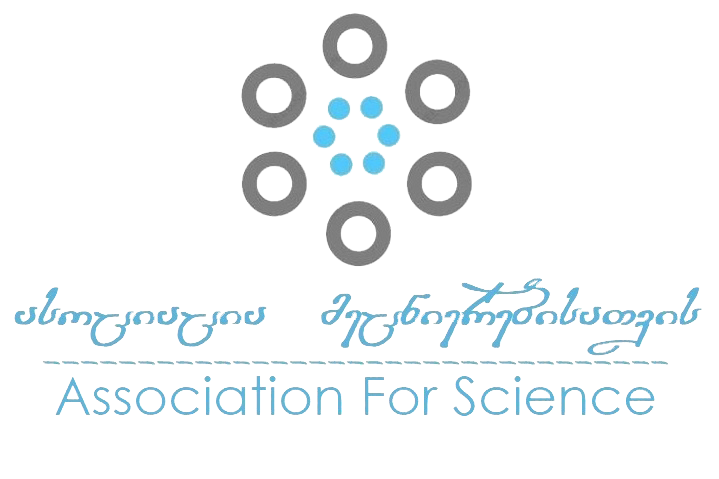Collocations Depicting Rituals Related to the Cult of the Dead in Svan (Ethnolinguistic Analysis)
DOI:
https://doi.org/10.52340/sou.2022.20.04Keywords:
Svan, Customs, Archaic, CollocationAbstract
In ethnolinguistics, the term collocation refers to various stereotyped behaviors (customs, rituals) reinforced by tradition, which are expressed by a solid linguistic unit. Svan language is characterized by the richness, variety, and archaicness of vocabulary, phraseology, and collocations depicting different traditions and customs.
More than two dozen collocations depicting customs and rituals related to the cult of the soul and the dead are revealed in the Svan language. Lakhorte lisi (ლალხორთე ლიზი) refers to the gathering of souls and making future decisions about what will happen in the coming year; Likungweshi (ლიქუნგვეში) includes rituals related to the cult of the dead; Kwini litkhe (ქვინი ლიტხე) means returning of the soul; Khocha Lakun (ხოჩა ლაქუნ) meaning heaven, a literal translation is „good abode of souls“, etc.The publication presents an ethnolinguistic analysis of these collocations. The context and structure of the use of collocations are studied.
Studies have shown that, according to the structure, there are collocations in Svan that are characterized by a verb component and a subject component Khocha Lakun (ხოჩა ლაქუნ meaning heaven, a literal translation is „good abode of souls“, Jodi Ham (ჯოდი ჰამ) meaning ritual of sending away souls, a literal translation is „long morning“). In Kartveliology, it is considered that Svan is the most archaic among the Kartvelian languages. Accordingly, the ethnolinguistic research of Svan phraseology and collocations related to customs and rituals provides an opportunity to make extremely interesting conclusions.
References
აზმაიფარაშვილი, ლ. (2020). ლევან აზმაიფარაშვილი. სიტყვაწარმოებისა და ფრაზეოლოგიის ეთნოლიგვისტური შესწავლისათვის. იბერიულ-კავკასიური ენათმეცნიერება. ტ. 48. თბილისი, „თბილისის უნივერსიტეტის გამომცემლობა“.
თოფურია, ვ. (2002). ვარლამ თოფურია.სვანური სინტაქსი. შრომები, ტ. II. თბილისი, გამომცემლობა „ქართული ენა“.
თოფურია, ვ. ქალდანი, მ. (2000). ვარლამ თოფურია, მაქსიმე ქალდანი. სვანური ლექსიკონი. თბილისი, გამომცემლობა „ქართული ენა“.
კოჟევნიკოვა, ე. (1927). ევდოკია (დინა) კოჟევნიკოვა. სვანური ტექსტები [ხელნაწერი 1200 გვერდი].
ლიპარტელიანი, ა. (1994). ასლან ლიპარტელიანი. სვანურ-ქართული ლექსიკონი (ჩოლურული კილო). თბილისი.
მიბჩუანი, თ. (1989). თემურ მიბჩუანი. დასავლეთ საქართველოს ქართველ მთიელთა ეთნოგენეზის, განსახლებისა და კულტურის ისტორიიდან, თბილისი, „თბილისის უნივერსიტეტის გამომცემლობა“.
ნიჟარაძე, ბ. (1962). ბესარიონ ნიჟარაძე. თავისუფალი სვანი. ისტორიულ-ეთნოგრაფიული წერილები. თბილისი, „თბილისის უნივერსიტეტის გამომცემლობა“.
სწძ (1986; 1988). სვანეთის წერილობითი ძეგლები, (ტექსტები გამოსაცემად მოამზადა ვალერი სილოგავამ). ტ. I. ტ. II. თბილისი, გამომცემლობა „მეცნიერება“.
ფენრიხი, ჰ. სარჯველაძე, ზ. (1990). ჰაინც ფენრიხი, ზურაბ სარჯველაძე. ქართველურ ენათა ეტიმოლოგიური ლექსიკონი. თბილისი, „თბილისის უნივერსიტეტის გამომცემლობა“.
ჯავახიშვილი, ივ. (1979). ივანე ჯავახიშვილი. ქართველი ერის ისტორია. I. თბილისი, გამომცემლობა „მეცნიერება“.



